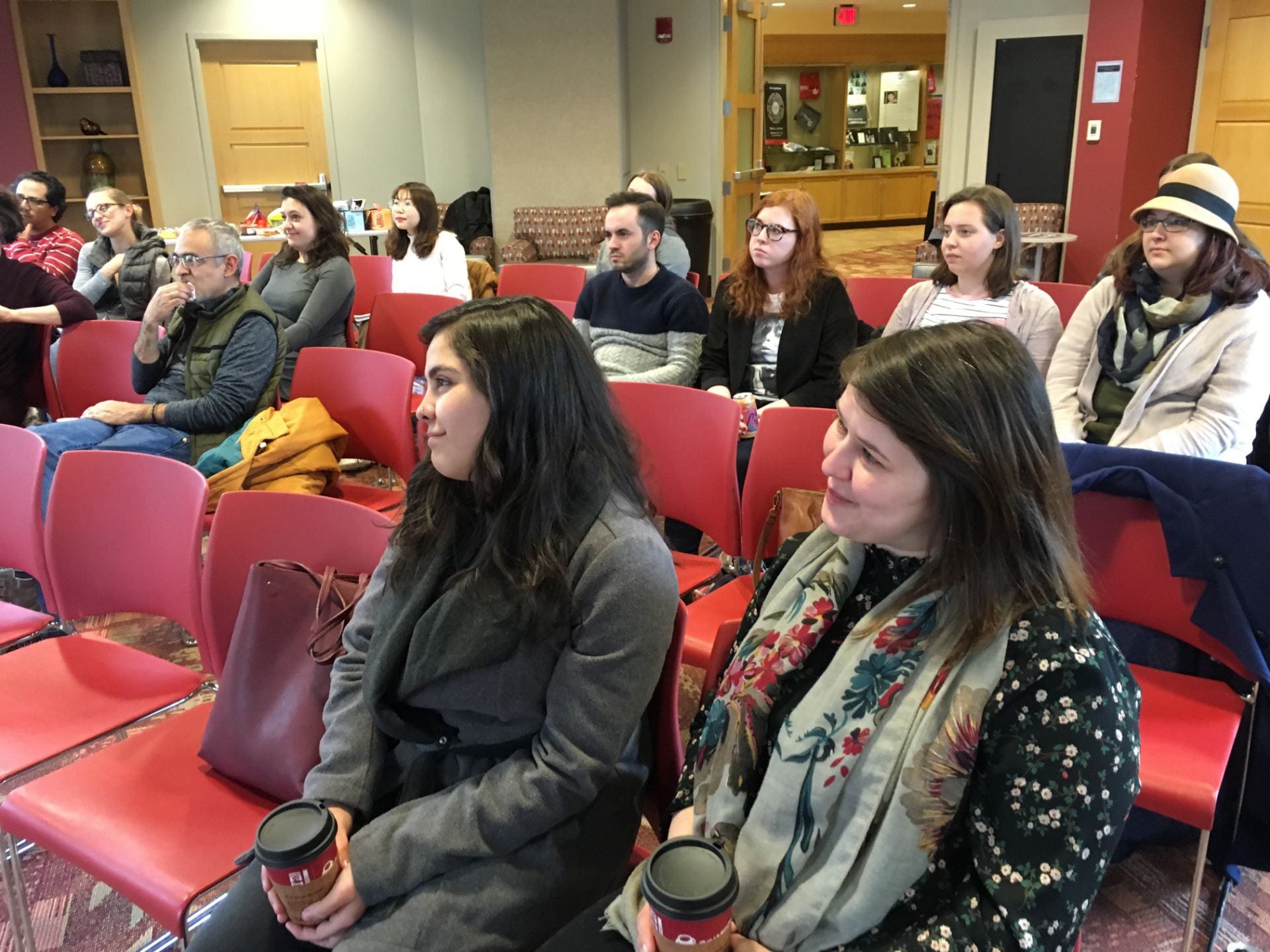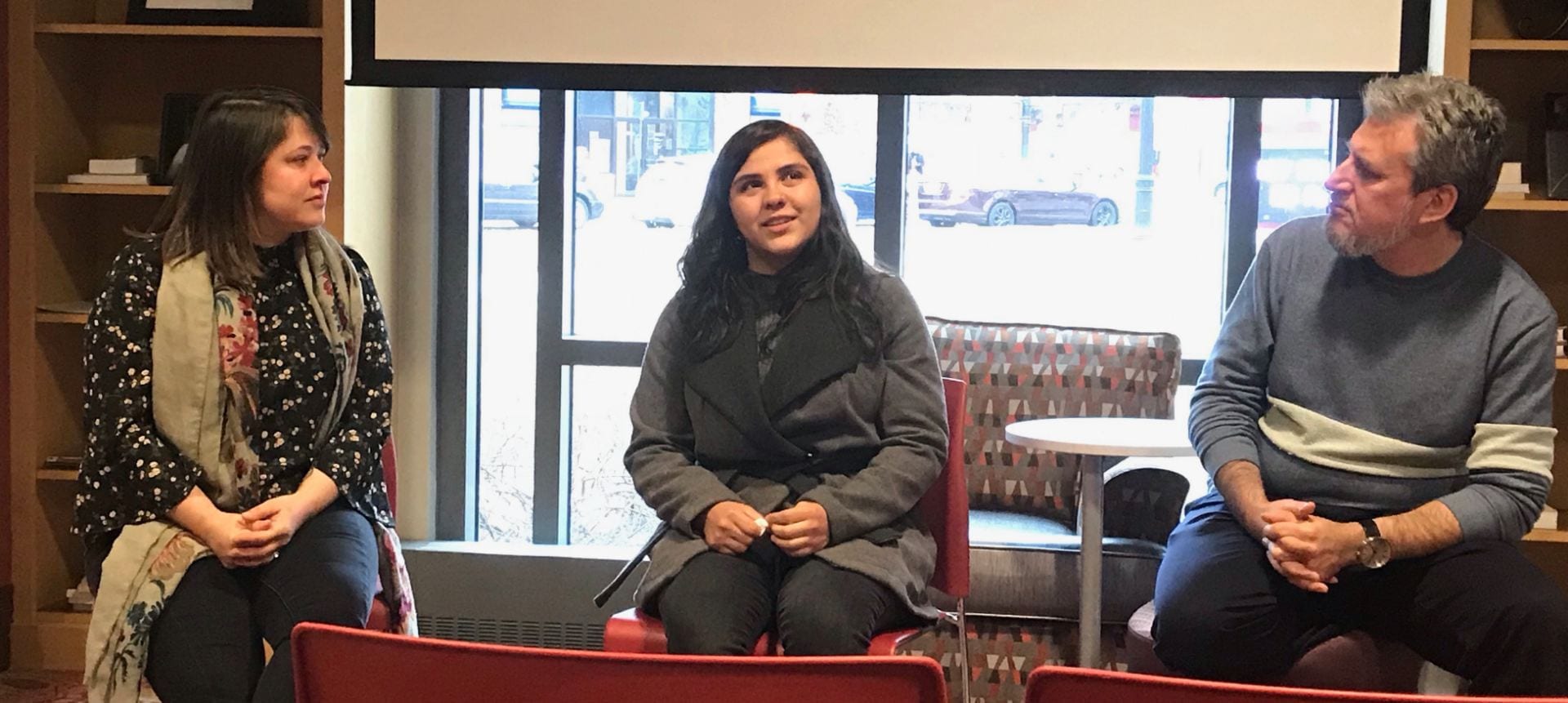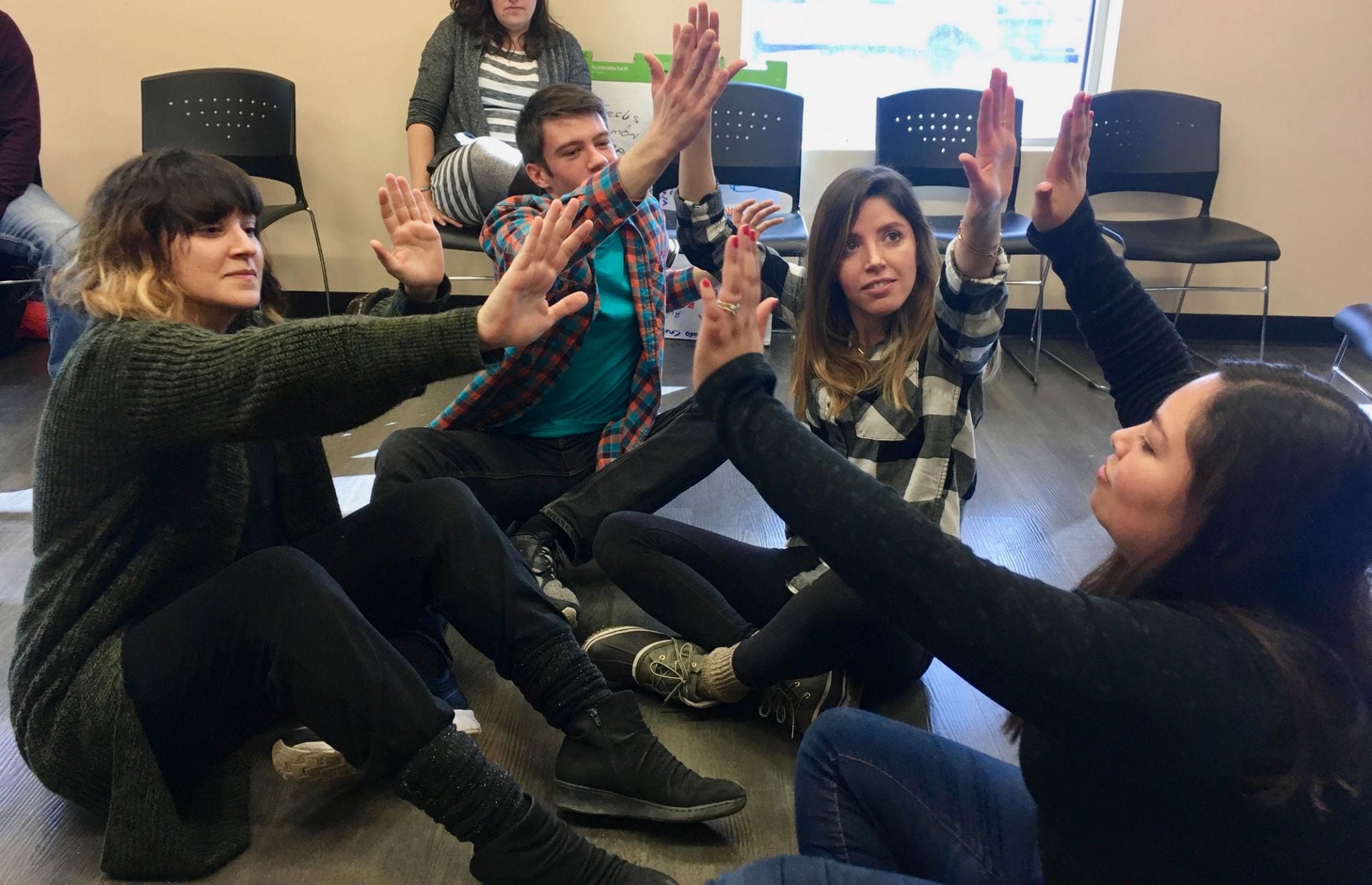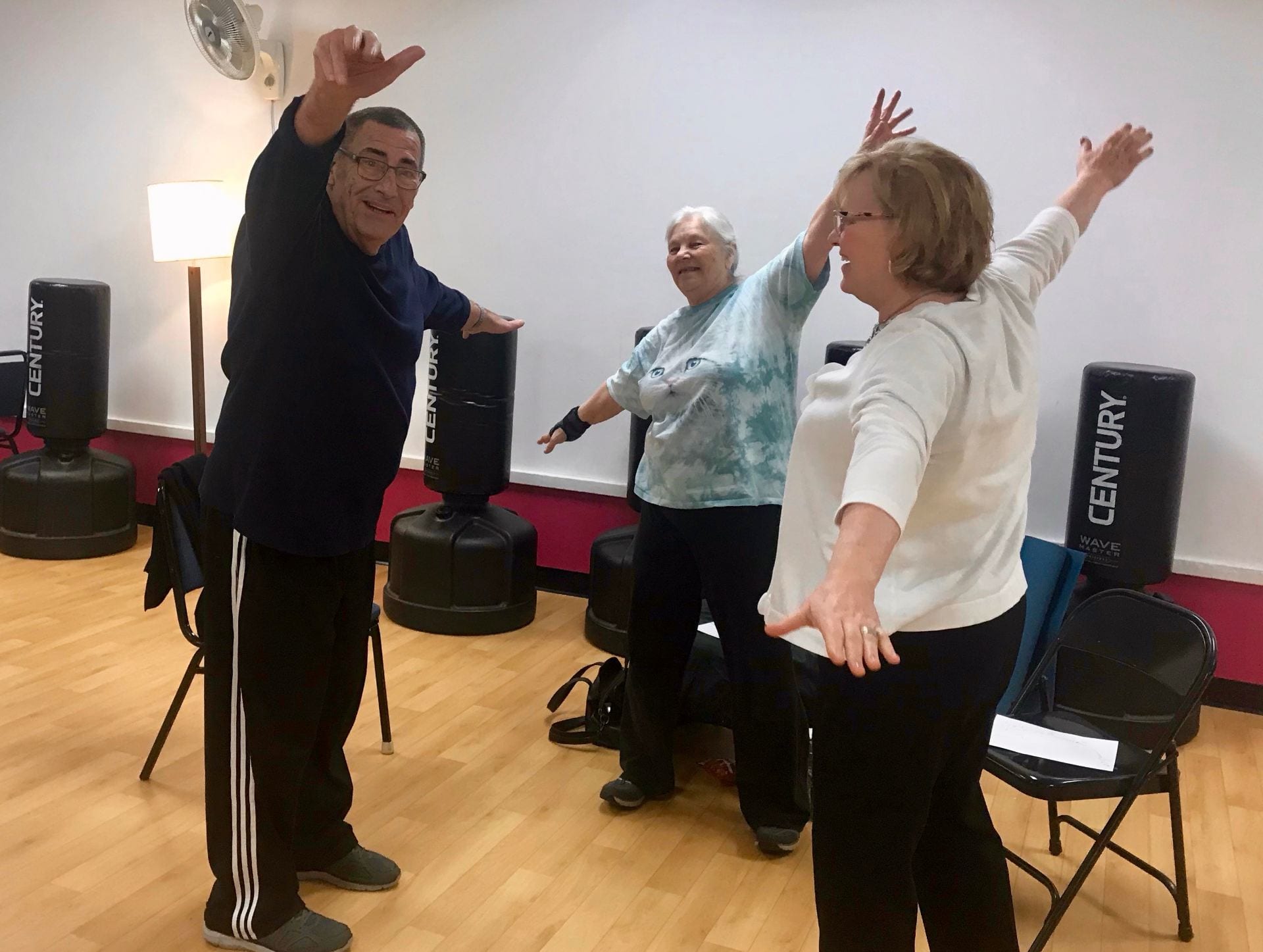On stage and in community performance workshops for youths and adults, the Albany Park Theater Project challenges inequality and racism by asking people to bear witness to stories that might otherwise get overlooked or misrepresented. APTP performances humanize complex issues like immigration, foreclosure, poverty, abuse, hunger. Audience members emerge from their journeys at APTP with greater respect for the struggles and dreams of others – and with a desire to learn, have genuine dialogue, and take action. In the process of creating original plays, APTP has joined grassroots organizations throughout Chicago fighting against detentions and deportations, new prisons, foreclosures – and in support of humane immigration policy, investment in neighborhood schools, affordable housing, and more.
On Thursday, February 28th, Migration, Mobility and Immobility hosted Artist in Residence, David Feiner of Albany Park Theater Project. Feiner’s talk, “Performing Migration, Mobility, and Immobility” was hosted in collaboration with the Multicultural Center, the Performance Studies Working group, and Discovery Theme’s Be the Street. In his artist talk, Feiner described APTP’s thirteen-month process for creating a piece of theater entitled Home/Land, which opened in Albany Park in 2012 and later went on to the Goodman Theatre. Home/Land is an ethnographic theater piece created by APTP’s youth ensemble that “brings to theatrical life a collection of real-life stories of desire, risk, resilience, heroism, love, and hope – as immigrant families strive to stay together and make a better life in the land they’ve come to call home” (Feiner 2012). A piece structured in three acts, Home/Land explores origin stories, a demonic system, and small miracles.
Feiner emphasized that in the APTP youth ensemble, they start with themselves and then expand outwards. He spoke of how important it is at APTP that artists have direct connections to a subject matter and shared that this piece was particularly resonant as a quarter of the ensemble members were undocumented, themselves. APTP’s ethnographic process began with story circles and then progressed to attending rallies and planning meetings. At these events, the ensemble met leaders of the movement and these encounters led to interviews. At each interview, the youth would ask, “who else should we be talking to?” Conversations with a father, Padre José, and a group that called themselves, “Women divorced by ICE” greatly influenced the piece. Feiner remembered the women commenting that it was so important to meet young people who wanted to hear their stories. Comments like these frame APTP’s work in memorializing this moment of the immigrant justice movement.
Following Feiner’s talk, there was a Q&A with Director Maggie Popodiak and Actor Stephany Perez. During this Q&A, we discussed some of the complexities of ethnography, the impact it had on the young people in the ensemble, and how the relationships with interviewees and activism continued after Home/Land opened.
In addition to this artist talk, APTP’s residency included David, Maggie, and Stephany visiting Be the Street’s community workshops and providing feedback to the graduate student facilitators as they create original performances with folks in the greater Hilltop area.





